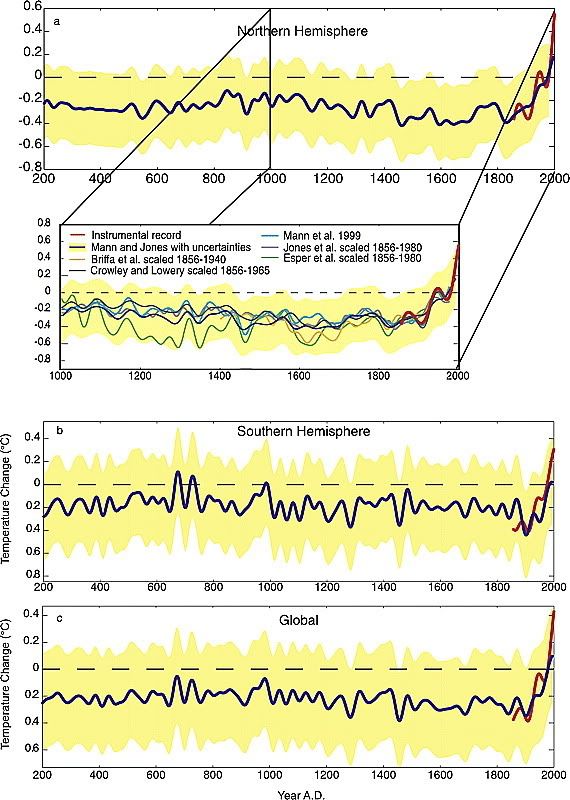My point is that without direct observation and repeatability we are dealing with a hypothesis ie hypothetical ie "complex speculation".
The theory of gravity can be observed and repeated.
Electrical circuit theory can be observed and repeated.
Global climate change hypotheses have not been observed nor repeated and are as such "complex speculation." Global weather patterns such as temperature, precipitation, sea level, etc. have been measured and recorded for at most a few hundred years compared to the several thousand or million years "speculated" on.
Maybe in another few million years with an identical sister planet as a control variable we can actually formulate observable and repeatable theories of global climate change. Until then may the political types decide what is best for the planet.
... five, six, seven, eight ...
The theory of gravity can be observed and repeated.
Electrical circuit theory can be observed and repeated.
Global climate change hypotheses have not been observed nor repeated and are as such "complex speculation." Global weather patterns such as temperature, precipitation, sea level, etc. have been measured and recorded for at most a few hundred years compared to the several thousand or million years "speculated" on.
Maybe in another few million years with an identical sister planet as a control variable we can actually formulate observable and repeatable theories of global climate change. Until then may the political types decide what is best for the planet.
... five, six, seven, eight ...


